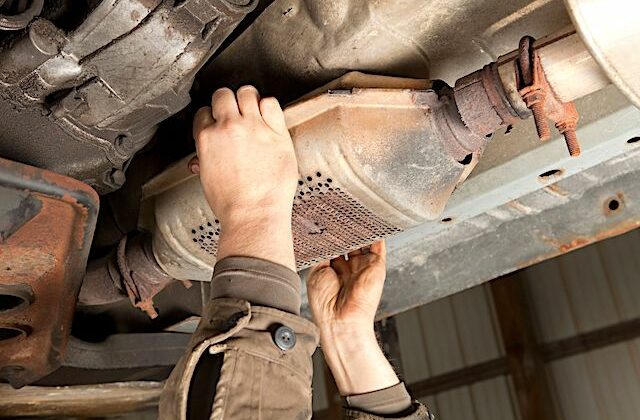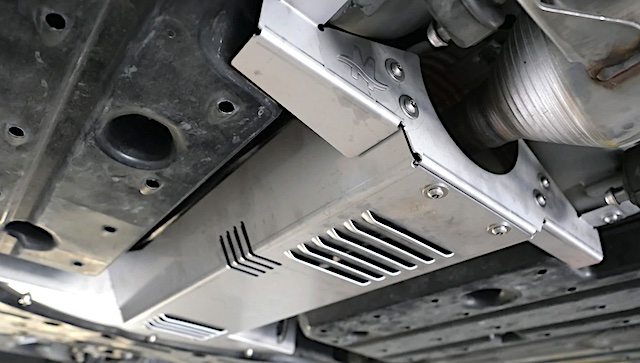
Toyota and its luxury arm Lexus are selling cars in the US with an optional ‘cat shield’, in an effort to stymie the theft of catalytic converters, a crucial exhaust component which contains a precious metal worth six times more than gold.
Hybrid models from the Japanese nameplates are the main targets because they have anti-pollution devices with even more precious metals than the average car.
The shield is an aluminium and stainless steel plate, an additional extra costing around $NZ220, that covers the converter. The plate’s maker, California company MillerCat, admits it is more a visual deterrent than a physical one, despite its tamper-proof screws.
The theft of converters has become such a rogue industry in the US in the past few years that Washington lawmakers are considering it mandatory for the devices to be stamped with the car’s Vehicle Identification Number (VIN), the unique 17-digit ‘fingerprint’ which stays with a vehicle throughout its life.
Authorities in the US say the proposed legislation could also result in a funding programme where dealerships and service centres stamp VINs on to the catalytic converters of existing cars.
Six months ago police in the US city of Portland, Oregon, uncovered more than 44,000 catalytic converters stolen from car exhausts, with an estimated street value of $NZ35 million. According to the US National Insurance Crime Bureau, thefts increased by more than 1000% in two years, from a reported 1298 in 2018 to 14,433 in 2020.

A month before last Christmas, US authorities busted a nationwide crime ring which allegedly made more than $NZ850 million from stealing, selling and extracting the precious metals.
Thefts in New Zealand and Australia over the past couple of years have also increased, say police. What thieves target are the rare earths – rhodium, platinum, palladium – inside the honeycomb-type converters that filter out harmful exhaust gases from combustion engines.
Rhodium is the biggie. It is unparalleled in its ability to remove the most toxic pollutants. Two years ago, when US thefts were at a peak, the price of rhodium per troy ounce rose to a new high of $NZ46,500.
It slipped back towards the end of last year to around $NZ18,700. A troy ounce of gold is trading at $US1840, or around $NZ2970.
Car criminals crawl under parked cars – in driveways, on streets, shopping mall parking lots, and dealership forecourts – to cut out with battery-operated saws the core exhaust component that contains precious metals.
The stolen catalytic converters are sold to unscrupulous recyclers for cash, for between $NZ400 and $NZ600 each. The precious metals are then extracted and on-sold to refineries.
The removal of catalytic converters from cars allows exhaust gases to exit engines much faster and at higher levels. The result, in a nutshell, is a touch more power, a louder exhaust note – and more harmful CO2 emissions.
